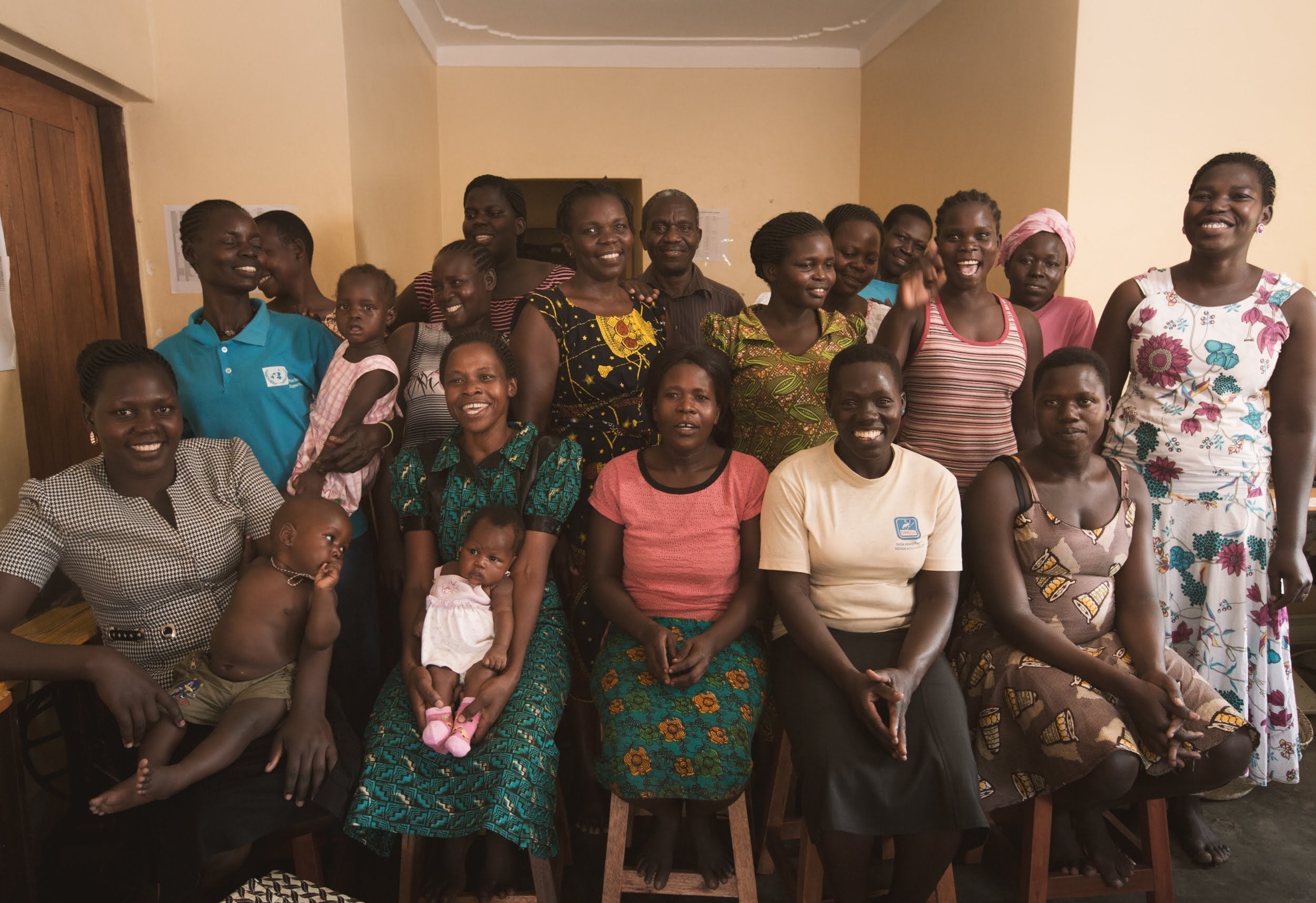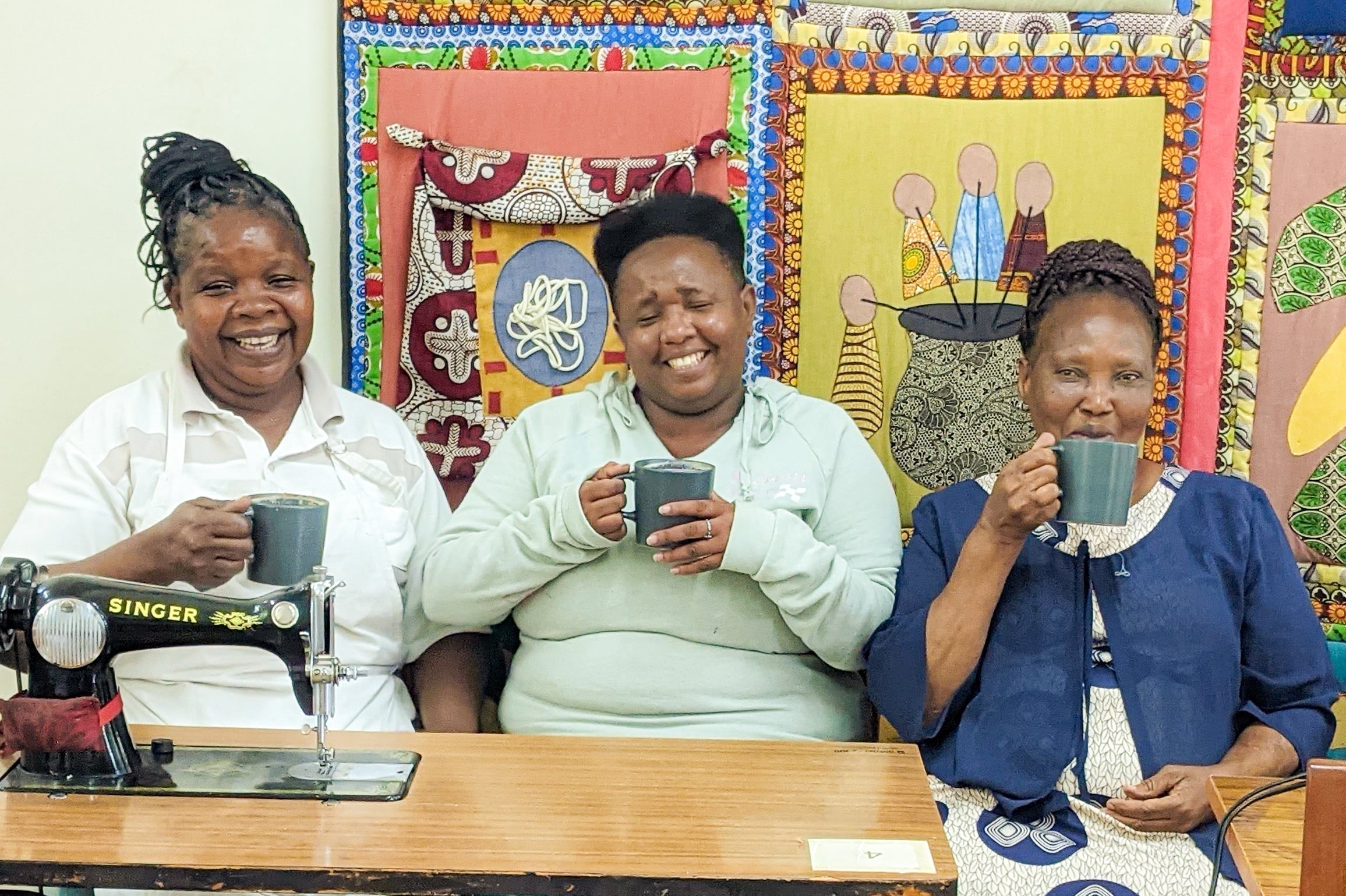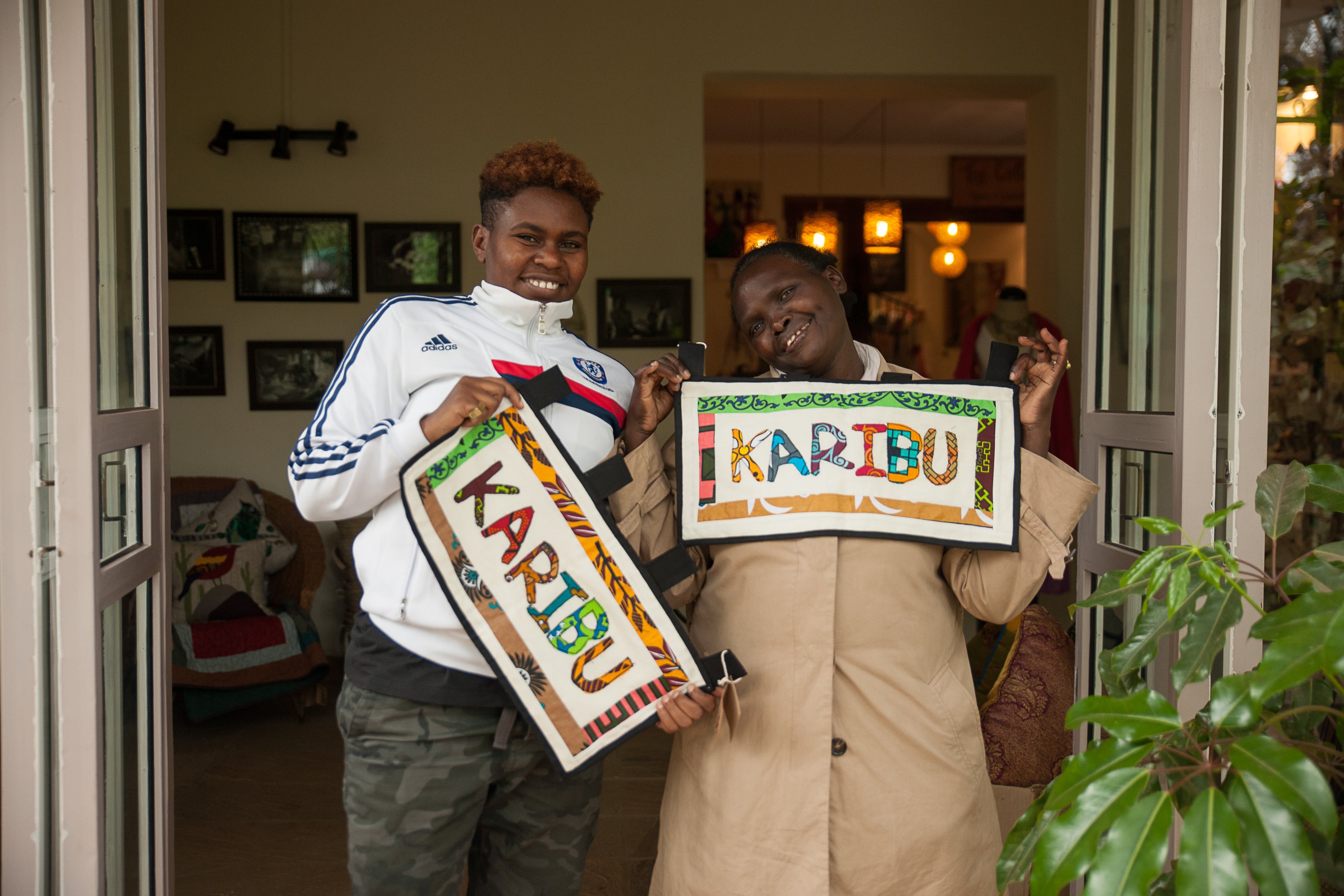Rahab's Paper Beads
The women who come through Amani ya Juu do not always stay. In fact, Amani often considers it a success when a woman moves beyond our gates. Some businesses, like Rahab’s Paper Beads, are formed by women who learn skills at Amani, then start their own businesses.
Today, Rahab shares her story with the friends of Amani. “You know, at Amani they take people with certain problems. At the time our place was bad, I was a single mother,” she begins. But to understand Rahab’s story, we must start at the beginning. When she was 9, she lived with her parents and younger sister in a slum. Her father died, and because they could no longer afford the rent, they were chased out by slum landlords. The girls were sent to live with a grandmother while their mother worked as a housekeeper nearby. Rahab’s mother eventually paid for Rahab to attend sewing school. “I wanted to go to college to be a counselor or beautician, but my mom didn’t have enough for that.” Before Rahab finished school, she became pregnant. Her boyfriend told her he would marry her, but left when she was 8-months pregnant. She began to sew for a commercial business. Her child grew ill, and because she had to leave constantly to care for her, she was unable to work. As the money dried up and she could no longer afford rent, Rahab relived a scene from her youth. “We lived in a big slum and some people wanted to chase us from there, so they set the slum on fire.” Rahab lost everything.
Rahab with her Mother, Elizabeth, who still works at Amani
Rahab smiles. “That’s when my friend introduced me to Amani.” After developing her skills for several years within the walls of Amani, it became clear that Rahab was skilled and creative. She was asked to try making beads. She began taking orders, and soon, with a loan from Amani ya Juu, she had enough to start her own business. “I feel good, I feel like I’m going somewhere. I am using my brain! There’s something about waking up and saying ‘that’s mine, that idea is mine!’” Running her own small business is a challenge. Rahab cannot always depend on sales from customers to order new stock. In addition, she cannot always depend on her employees. “When my business is low and there is no work to be found, they go looking for jobs. It’s a challenge, because when I have an order, I have to hire new people and teach them.”Despite these challenges, Rahab feels empowered. “I know I have something on the table for my children. At the end of the day, I have enough money to take my sick baby to the hospital.” She also strives to influence others around her. “My life is not just mine,” she says with confidence. “I’m an example to my neighbors; I’m a challenge.” 
Rahab, Susan, Claire, and Irene outside Rahab's house
Rahab’s daughters (10 and nearly 3) are growing, and she and her husband are thinking of leaving the slum where they live. “I’m dreaming of having my own place with my own land for my business. I dream of helping other people who think they can never make it in life. They don’t have to dwell on the past.” At Amani ya Juu, seeing women gain confidence, grow in their faith, and have their dreams flourish is more profitable than any dollar amount.
Meet the women of Rahab's Paper Beads...
Last year, Susan (20) found herself pregnant, alone, and without hope. She was considering terminating her child rather than watching it grow up in the slum, struggling for adequate nutrition. That's when Rahab offered her a job. "Rahab, she's like a mother to me---I love her so much; she's always there," says Susan.
Today, Susan brings her son David to work at Rahab's house. She uses her income from the beads to pay for various expenses. Most recently, she paid her driving school fee---she wants to learn to drive and get a license.
When asked what advice she would share with the world, Susan thought for a moment and said this:
"To be kind hearted, to be loving, just like her (Rahab), she's my mentor, she's my role model---just like Oprah!"
Claire (21) has an extraordinarily sweet presence and a voice like chimes.
"I'm almost finished with college," she says with a smile, "I can do multiple things but I've specialized in accounting."
Claire has grown up in the slum with her single mother. In the past few years, she's been involved with community development programs in her informal neighborhood, such as community cleaning. She loves the idea of people improving their lives and taking pride in their surroundings. "When you compare past years to now, you see there is quite some improvement," she says, gesturing outside. The streets---mud pathways, really---run with rainwater and human waste. But people are now taking care to leave their trash in designated places.
She started working with Rahab two years ago. In a single day, Claire can roll up to 600 paper beads...
"if I'm not doing anything else," she says, grinning shyly. "She (Rahab) is a good friend of mine, so we work together, coordinate together; its a good thing."








Leave a comment
This site is protected by hCaptcha and the hCaptcha Privacy Policy and Terms of Service apply.